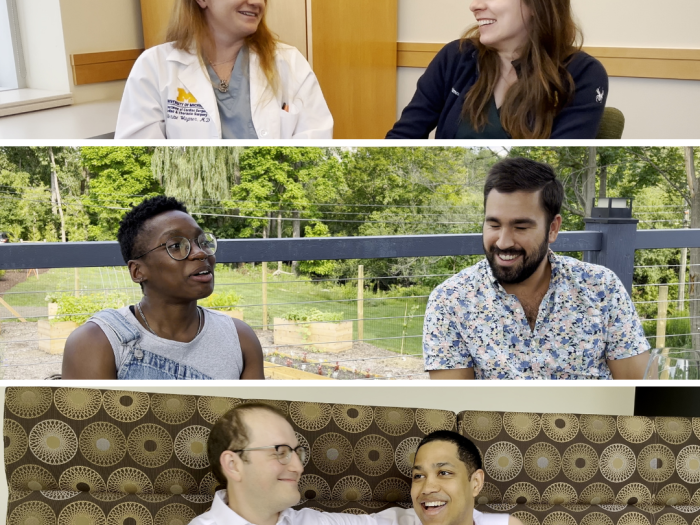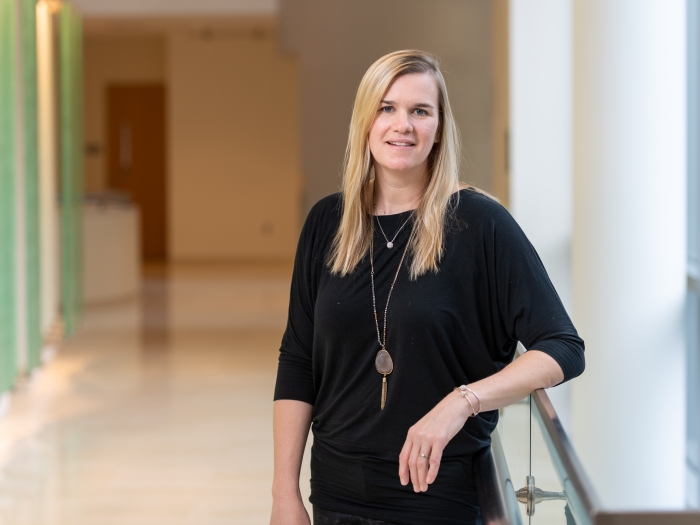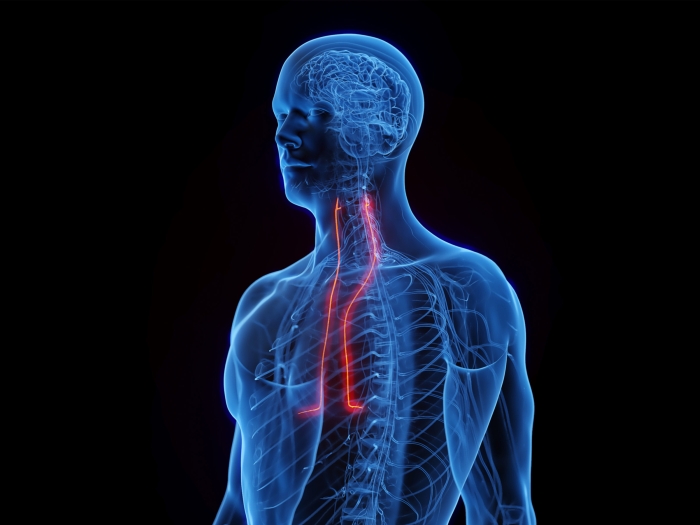
With nearly two dozen labs, Department of Surgery researchers cover a lot of ground — from finding treatments to vexing diseases like pancreatic and lung cancer, to improving the organ transplantation process, to optimizing the way healthcare is delivered, to better understanding injuries.
Explore some of our department’s strengths in basic science, clinical and outcomes research.
Department research into cancer and tumor biology begins at the level of basic science, using novel methods to understand the proteins and signaling pathways of cancers, and extends into early clinical trials for target drugs.
Department of Surgery faculty play key roles in statewide quality collaboratives and in the University of Michigan’s Institute for Healthcare Policy & Innovation. Research focuses on understanding the impacts of state and national healthcare policy, and on studying long-term patient outcomes following surgery.
By leveraging the body’s building blocks of nerve and bone, we’re creating new treatments for patients with congenital anomalies or injuries resulting from trauma or disease. For patients who’ve lost a limb, we’re working to develop a prototype of a regenerative peripheral nerve interface that would one day allow for control of prosthetic devices.
The Department of Surgery faculty members explore a wide range of neonatal and pediatric conditions in their research efforts, reflecting the breadth of their expertise. This research seeks to improve the lives of our youngest patients.
Disorders of the metabolic system pose one of the greatest threats to human health in part because we have few effective treatments. Researchers in the Department of Surgery aim to change that by studying the molecular mechanisms of dysfunctional metabolism in order to develop new interventions for diabetes and obesity.
Our surgeon scientists are investigating new approaches to train surgeons and surgeon educators and optimize surgical training programs. We are seeking to advance surgical education research and innovation.
By teaching and modeling entrepreneurship, Department of Surgery faculty advance the development and commercialization of new treatments, new medical devices, and new ideas for the delivery of care.
From studying crash test data to developing novel treatments for severe burns, our trauma and critical care researchers bring a multidisciplinary perspective to their work, with the goal of improving trauma survivors’ quality of life and reducing the societal burden of severe injuries.
With more than a dozen dedicated faculty, our vascular research program is one of the largest of its kind and covers a broad scope of interests — including venous thrombosis, vascular inflammation, thrombus resolution, traumatic injury, nephropathy, abdominal aneurysms, and image-based modeling of hemodynamics.
Your contribution helps us research medical breakthroughs, make medicine more inclusive and train the next generation of surgical leaders.
The Michigan Promise aims to empower faculty members and residents in the Department of Surgery to achieve professional success. We support initiatives connected to environment, recruitment, leadership, achievement, innovation and outreach.





